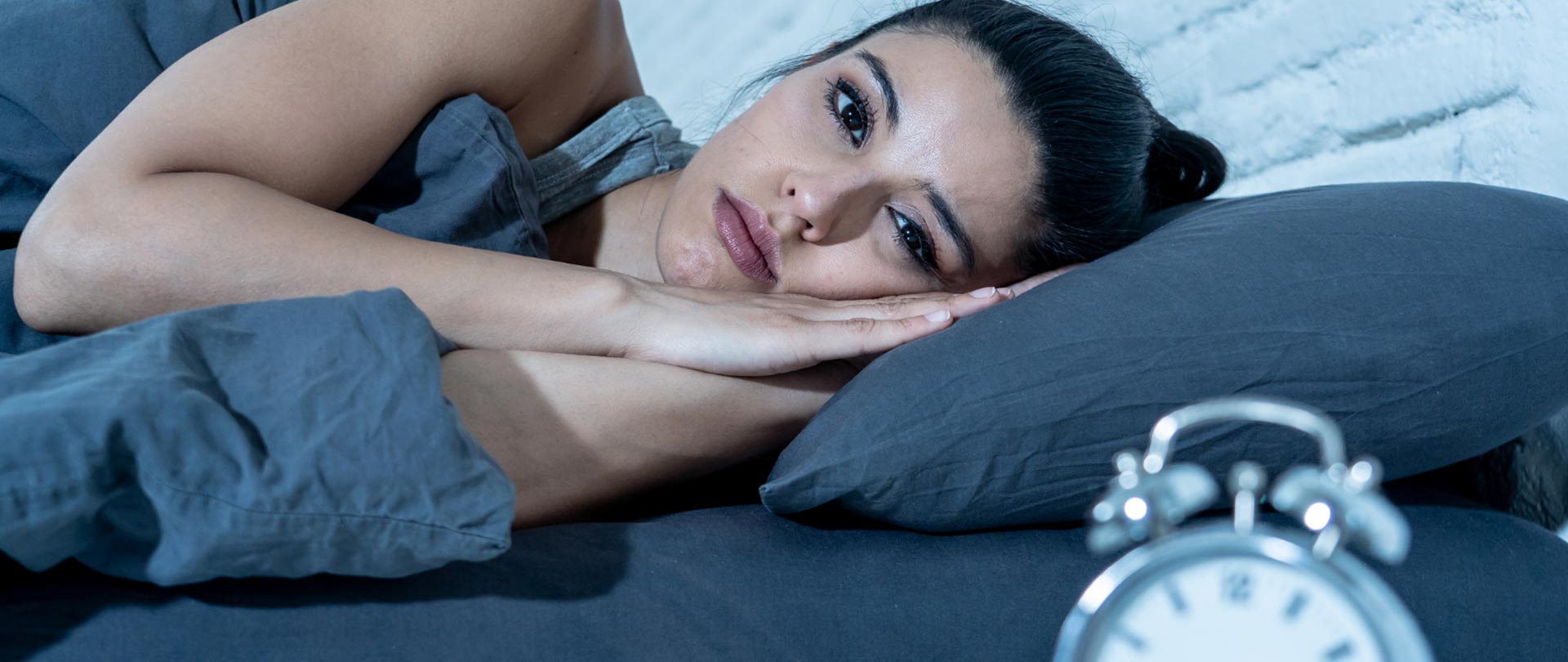There is nothing more rewarding than a restful night of sleep after a long day of hard work. But for people who suffer from insomnia, falling asleep and staying asleep can be a daily challenge. Insomnia is a sleep disorder with unsatisfactory quantity and/or quality of sleep, characterized by persistent difficulty in falling asleep and/or staying asleep. Around one-third of Australians will experience insomnia at some point in their lives, with higher incidence in women and elderly people. Insomnia can be short term or go on for months or even years. Insomnia can lead to sleep deprivation and daytime consequences such as fatigue and poor concentration. This can significantly reduce quality of life in the long term and affect a person’s ability to function in their day-to-day tasks.
Treatment options for insomnia vary depending on the nature and duration of presenting symptoms. All patients should be educated on good sleep hygiene such as avoiding stimulants and maintaining regular sleeping hours, to faciliate self care and promote optimum conditions for sleep. Other non-pharmacological interventions such as cognitive behavioural therapy can be used to manage persistent insomnia. Sedatives medications induce sleep and can be used to provide temporary relief from symptoms for short term, but do not treat the underlying cause and may have addictive properties in prolonged use. The use of Chinese herbal medicine and acupuncture as a natural treatment option for insomnia has been increasing in popularity over the years.
What are the symptoms of insomnia?
Symptoms of insomnia include:
- Difficulty in falling asleep
- Waking up throughout the night and difficulty falling back asleep
- Waking up too early
- Feeling tired after a night’s sleep
- Sleepiness or tiredness during the day
- Poor memory or concentration due to sleep deprivation
- Depression, headache and irritability
Symptoms can be short term (acute) or long term (chronic), and can come and ago. Acute insomnia lasts for a few days or weeks while chronic insomnia is defined as having symptoms for at least 3 nights a week for 3 months or longer.
What causes insomnia?
Insomnia can be caused by a number of different factors such as:
- Poor sleep habits such as irregular sleeping patterns, lack of relaxing pre-bedtime activities and sub-optimal sleeping environment.
- Stimulants like caffeine, nicotine and some prescription medicines especially if taken closer to bedtime. Alcohol needs to be consumed in moderation, it can be disruptive to sleep and reduce quality of sleep especially if consumed close to bedtime.
- Stress due to external factors like work, finance, relationship issues or grief.
- Age, the elderly population are more lifely to suffer from insomnia.
- Shift work that prevents a person from establishing a regular sleep pattern or night time work.
- Mental health disorders such as depression, anxiety where insomnia is a common symptom; and sleep disorders such as obstructive sleep apnoea and restless legs syndrome.
- Other medical conditions such as digestive or urinary issues, hormonal changes such as in menopause, and pain conditions.
What are the conventional treatments for insomnia?
Good sleep hygiene is beneficial for all types of insomnia. Good sleep hygiene includes setting a regular sleep routine, going to bed and rising at the same time each day, optimising the sleep environment for example ensuring the bedroom is dark enough, avoiding stimulants or substances that disrupt sleep, ensuring adequate exercise during the day and exposure to natural light and darkness, and keeping pre-bedtime activities like smartphone use to a minimum. Sometimes practicing good sleep hygiene and reducing external factors like stress might be enough to rectify some cases of acute and mild insomnia. Any underlying conditions or health issues contributing to insomnia will be also need to be investigated and addressed.
Where needed your doctor or pharmacist may prescribe medications to aid sleep onset especially if the insomnia is affecting your daytime functioning. However these medications can only be used for short term as they may have addictive properties and tend to lose their effectiveness over time. Cognitive behavioural therapy is often used to promote good sleep habits and avoid behviours or thoughts that worsen insomnia. This catergory includes stimulus control therapy, relaxation exercises, sleep restriction, and light therapy.
How can acupuncture help with insomnia?
Acupuncture is a form of traditional Chinese medicine (TCM) that many patients are turning to for help with insomnia. With origins in China, acupuncture has made its way into many Western countries like Australia, Canada, the United States, and European countries where it is widely practiced today. TCM practitioners believe that a healthy flow of energy (qi) through channels or or qi pathways (meridians) inside the body is what promotes good health and well-being. If this energy flow is blocked, it can lead to pain, discomfort, and illness. Acupuncture uses thin needles strategically placed in specific points along the meridians to remove these blockages and restore the energy flow throughout the body. This can help restore balance, alleviate pain, stress and anxiety, enhance sleep, and improve overall wellbeing.
Western medical practitioners believe that acupuncture stimulates the nervous system and promotes the release of neurochemical messenger molecules. This results in a biochemical change that affects the body’s homeostatic mechanisms to promote physical and psychological wellbeing. Stimulating certain acupuncture points have been shown to affect different areas of the brain that reduce pain and stress levels, as well as destimulating the brain and increasing relaxation, which all contribute to better sleep. Acupuncture can also help address underlying issues that cause the insomnia such as anxiety and depression.
According to “The Acupuncture Evidence Project”, a comparative literature review published in 2017, there is moderate evidence supporting the effectiveness of acupuncture for management of insomnia. Although more research is needed to find out exactly how much acupuncture can help in terms of improving sleep, there are substantial number of randomised trials demonstrating positive results for it to be considered a potential treatment option for insomnia. Acupuncture may also be safely and effectively combined with conventional medical treatments for insomnia such as benzodiazepines under the direction of a TCM and medical practitioner.
Studies have shown that acupuncture can help with insomnia in a number of ways:
- Increase secretion of nocturnal endogenous melatonin (a hormone that regulates sleep cycle).
- Promote opioid production and µ-opioid receptor activity (which helps with pain management).
- Increase blood flow in the cerebrum.
- Lower sympathetic nervous system activity therefore increasing relaxation.
- Regulate neurotransmitters levels such as serotonin, noradrenaline, dopamine, GABA and neuropeptide Y, leading to changes in brain chemistry and mood to reduce tension and increase relaxation.
- Increase nitric oxide synthase activity and nitric oxide levels in the brain which may help to produce sleep.
While the experience will be different for everyone, acupuncture is a pleasant procedure and usually doesn’t cause pain. The needles are very thin and gently inserted, so insertion usually causes little discomfort and some patients don’t even feel them been inserted at all. Depending on the patient and the part of the body been treated, some patients may experience a slight prick, or a mild dull ache or a slight tingling sensation. This may be a sign that the treatment is working and the acupuncture point is being activated. Some patients may also feel a heavy or electric sensation, and warmth at the acupuncture points.
How can we help?
At Baolin Acupuncture and Chinese Medicine Centre, we use a combination of acupuncture and Chinese herbal medicine to help with insomnia. From a Chinese medicine perspective the cause for every individual’s insomnia is unique and therefore treatment needs to be specific for each individual. A face to face consultation based on TCM diagnostic method is necessary so our practitioners can look at the overall picture to determine what is out of balance in the body and causing the insomnia in order to prescribe the right treatment. In addition to acupuncture and Chinese herbal medicine treatment, our practitioners also give advice on good sleep hygiene and dietary recommendations.
For more information on acupuncture and Chinese herbal medicine for managing insomnia please contact us at our clinics (Perth: 9228 8828; Subiaco: 9380 4171). Alternatively, you can send us your queries through our online contact page.


